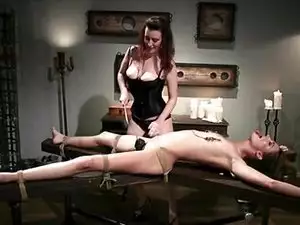Duty And Duplicity; Book 5 Of Poacher's ProgressChapter 25: Mad, Bad, And Dangerous To Know free porn video

We arrived at the lagoon that surrounds Missolonghi on March the 15th. After identifying ourselves at Aitoliko, one of the islands guarding entry to the lagoon, Euryale was allowed to proceed to the town’s harbour.
It was little wonder Missolonghi had withstood two sieges by Ottoman forces. The town sits on a long spit of land surrounded by a lagoon, making it a strong defensive position. Three islands, Marmaris, Klisova and Aitoliko, control the entrance to the lagoon. Much of the ground on the landward side is low lying and marshy
The town’s is surrounded by earthen walls, strengthened by a number of bastions containing cannons and mortars, forming triangular projections so defenders can bring interlocking fire on any attacker.
Missolonghi had become an eloquent symbol of Greek defiance to Ottoman rule. The numbers of Greeks and Philhellenes flocking to the town, eager to enlist in the struggle, has been greatly enhanced now that the famous Milord Byron had joined the fray.
If Byron could weld the disparate Greek groups into an efficient fighting force, and then defeat the Turks in battle, it would not only deal a decisive blow to Ottoman authority in Greece and the Balkans but might also encourage Russia and Austria to declare war on the Ottoman Empire.
Greek history had arrived at a turning point, with Lord Byron at its fulcrum.
I was still musing on that thought when Euryale drew alongside the wharf, dropped anchor and tied up. The cannons were soon stripped of their canvas covering and revealed to a crowd of excited Greeks clustered on the quayside. I told them, in a mixture of English, French, and Italian, we had brought the artillery to fight for the freeing of all Greeks from the yoke of the Turks.
As can be imagined my oration was met with a wild tumult of applause, cheering, and great jubilation. Callum and I were carried shoulder high, to what appeared to be the tent of a high personage. I hoped it would be Byron himself we would face but unfortunately it was only one of his subordinate commanders, Paolo Gardoloni, the Italian commander of a Philhellene regiment of non-Greeks, enlisted to fight for the independence of Greece from Turkish rule.
After thanking me for the artillery, powder and shot he invited me and my servant, as he thought Callum to be, to his regiment’s cantonment at a ruined farm complex several miles inland from the town of Missolonghi.
I soon realised why Gardoloni had not quartered his men in the town.
There was an unhealthy stench of corpses about the place. Scores of Ottomans, mostly Albanians, lay unburied outside the earth walls of Missolonghi, rotting away in malodorous heaps. Inside the town many Greek bodies still lay under the ruins of their shattered homes, destroyed by Ottoman artillery fire. The siege had been lifted the previous December, but the retrieval and burial of bodies did not appear to have been a prime consideration.
Gardoloni noted my distaste of the ghastly smell.
“It is not only rotting cadavers but also effluent causing this noxious odour. The Greeks are doughty fighters but have no idea of camp discipline. They defecate where they sleep and eat, and pollute the water they drink. The few latrines dug are far too shallow – it is mostly marshland where the Greeks are camped. I have sited my regiment well away from their main encampment.”
He pointed to a gaggle of Greek soldiery moving towards Missolonghi.
“The news that Milord Byron now leads the Greeks not only brings in recruits but also peace to what had been low level internecine warfare between the various Greek political factions.”
“I am anxious to present myself before Milord Byron...”
Paolo interrupted me.
“Unfortunately the Generalissimo is presently indisposed. A week ago he developed a feverish chill. Doctor Millingen bled him, as is usual in such cases, but Lord Byron then fainted. He was ordered to bed, and forbidden visitors until he makes a full recovery. Millingen thinks Lord Byron will be fit enough to receive visitors in about a week’s time.”
Gardoloni’s news came as an unwelcome surprise. The plan for Byron’s demise relied on him engaging in frequent, and energetic, sexual activity.
It could be some time before he was fit enough to conjoin, and the longer Callum and I remained at Missolonghi the more chance we had of being unmasked.
Callum and I were found room in the farm Gardoloni’s regiment was using as headquarters. Later that evening we took stock of the situation.
“I must first locate the flora from which to extract a sleeping draught,” Callum said. “Greece has many such plants; hemlock springs to mind, as well as belladonna and valerian. Eventually Byron will return to his normal habits, and as soon as he does we can administer the draught to his guards, and then box him.”
“Yes, but before that we must ascertain where his quarters are, and the number of his guards.”
Mustafa Pasha, the commander of the Ottoman troops besieging Missolonghi, withdrew from the town after losing his food supplies to a daring attack by a band of 250 Souliotes.
The Greeks were quick to seize what had been Mustafa’s opulent tented headquarters, which had housed his harem, musicians, and food tasters, besides the 1000 Turkish regular soldiers of his bodyguard.
Most of the Ottoman army was comprised of Albanian irregulars, with little stomach for fighting, especially on an empty one, which was the main reason for the retreat.
Mustafa was forced to leave behind several large luxurious tents, which Lord Byron appropriated for himself, his entourage, and his body guard, ‘Lord Byron’s Companions’.
A compound, containing storage areas for food supplies, plus an ordnance park, with stowage for powder and shot, was constructed adjacent to the tented quarters. There was also a kitchen area where food was prepared for the inhabitants of the tents – those not fortunate to be housed under Ottoman canvas had to cater for themselves.
A palisade, with a guardroom at the entrance, surrounded the compound and tented area.
The day after our arrival Callum and I paid a visit to the palisaded compound. As the person who had donated three field guns to the cause I was welcomed with gratitude, but even so was obliged to leave any weapons carried at the guardroom. I handed over the knife from the top of my right boot, but did not relinquish the smaller knife hidden in the left boot of the pair crafted by Signor Gucci of Livorno. I was not searched, but was informed that all visitors to Lord Byron tent were subject to a full search by Souliotes. Dire consequences would befall those who had not handed in all their weapons at the guardroom.
I judged that even if the knife in my left boot was discovered I would not be punished, other than with a tongue lashing, as I had a high standing with the Greeks due to the artillery I had brought them.
Of course, I might be living in a Fool’s Paradise, until such time as the Souliotes actually searched me.
While I busied myself at the ordnance park, and saw to the correct storage of the powder and shot shipped in on Euryale, Callum made a beeline to the kitchen area.
He soon struck up an acquaintance with a comely Greek maid among the female staff, and such was the charm of the Irishman that she and he kept me awake during the night by their loud, and frequent, bouts of copulation.
Callum’s enthusiastic bed companion, Ariadne, worked in the particular kitchen that provided meals to Byron and his Souliote Companion bodyguard. There appeared no security in the cooking complex, and Callum made frequent visits, at all times of the day, to see Ariadne. After helping prepare the evening meal for Byron and The Companions Ariadne would then visit Callum, and stay all night.
I persuaded myself my nights of disturbed sleep were in a good cause.
Our plan for the boxing of Byron was simple. When Byron returned to full health and recommenced nightly fornication, Callum, during a visit to the kitchen, would dose the pot containing Byron and The Companions evening meal with a potion to render them unconscious. Later that evening he would sneak into Byron’s bedroom, slit the sleeping lord’s throat, leaving the knife next to Byron’s equally somnolent bed-partner.
I was somewhat concerned that all the inhabitants of Byron’s large tent would be sharing the meal and the potion, which would mean a large amount of the concoction would be required. Callum laid that worry to rest.
“The other Europeans who live in the tent do not eat Greek food. Doctor Millingen, Lord Byron’s secretary Pietro Gamba, and the two British Philhellenes, Trelawney and Humphries, have their own French chef. Only Byron eats with his Souliote Companions.”
“What about Byron’s bed-partners, do they eat from the same pot as the Souliotes?”
“Regardless of what they eat, dosed with a sleeping potion or not, when I creep into their bedroom both Byron and anyone else in his bed will be slumbering with exhaustion after several hours of sexual activity.”
Our whole strategy rested on Byron’s sexual appetite, and it was galling for us to have to await him regaining strength before we could put the plan in operation.
It was a week before Byron’s physicians allowed him to have visitors.
During that week Callum Keane had discovered the plants needed to make the sleeping draught, and, by using the facilities of the kitchen where Ariadne worked, soon had a enough potion to disable the Souliote Companions bodyguard, Byron, and whomever, and how many, he was sleeping with.
During that same week I made daily visits to Mpampakoulia, hoping to find Captain Francesco Caracciolo and his xebec Bonaventure at anchor.
Without a means of escape from Missolonghi at hand I would not even contemplate the boxing of Byron, even when he was back to nightly copulation.
Callum’s time had been better spent than mine. He had gathered enough plants to prepare the potion, whereas I found no sign of Captain Caracciolo and his vessel.
Paolo Gardoloni saw me leaving for Mpampakoulia the first time I ventured forth, and advised me to go armed when travelling any distance away from Missolonghi.
“Deserters, from both armies, are hiding in the surrounding area, and there have always been brigands and bandits in the region,” Gardoloni said, and then paused, until his curiosity got the better of his courtesy.
“But why would you wish to visit Mpampakoulia?”
It was a fair question, to which I could not give the correct answer, but relied on the conviction of foreigners that all English are eccentric to satisfy his inquisitiveness.
“The sea bathing there is the best anywhere along the coast, or so I was informed by Sir Frederick Adams. I haven’t managed a full body immersion in the briny since Brighton in eighteen nineteen.”
“Sea bathing?”
“Excellent for clearing the bronchials, and tightening up the muscles, Paolo. You chaps should try it. But not around Missolonghi, there are too many corpses washing about. One might come down with a severe case of the lurgy.”
Paolo walked back to his headquarters, shaking his head at the peculiarity of the English.
Nevertheless I took his advice, and hired a horse and two saddle pistols, besides buckling on my broadsword, before setting out on any journey.
My first visit to Byron’s tented palace came a day after he was allowed visitors. Callum and I, along with a score of others, were permitted entrance to the guarded acres of tent.
‘Tent’ seemed an insignificant word to describe the magnificence of the palatial and extravagantly furnished abode that had once been Mustafa Pasha’s palace.
Silken draperies, brocades, damasks, Kashmiri carpets and rugs, all interwoven with fine canvas and linens, made Byron’s new home a Pavilion worthy of Alexander the Great.
I handed in the knife in my right boot at the guardroom of the palisaded compound; but even so all of us were thoroughly searched by the Souliote guards at the entrance to the pavilion. The blade in my left boot went unnoticed. I nudged Callum as we were escorted through the entrance.
- 22.06.2021
- 42
- 0




























































